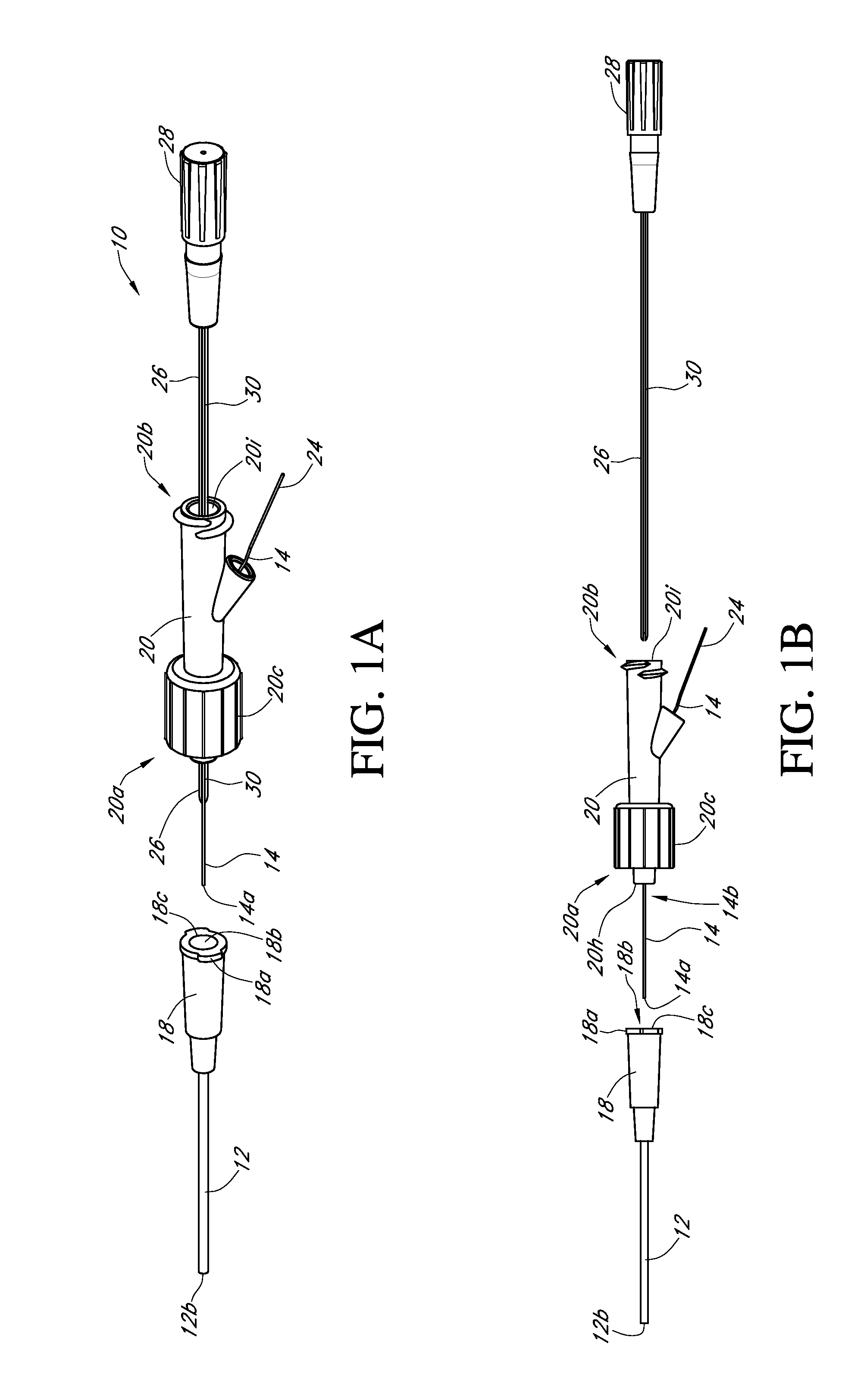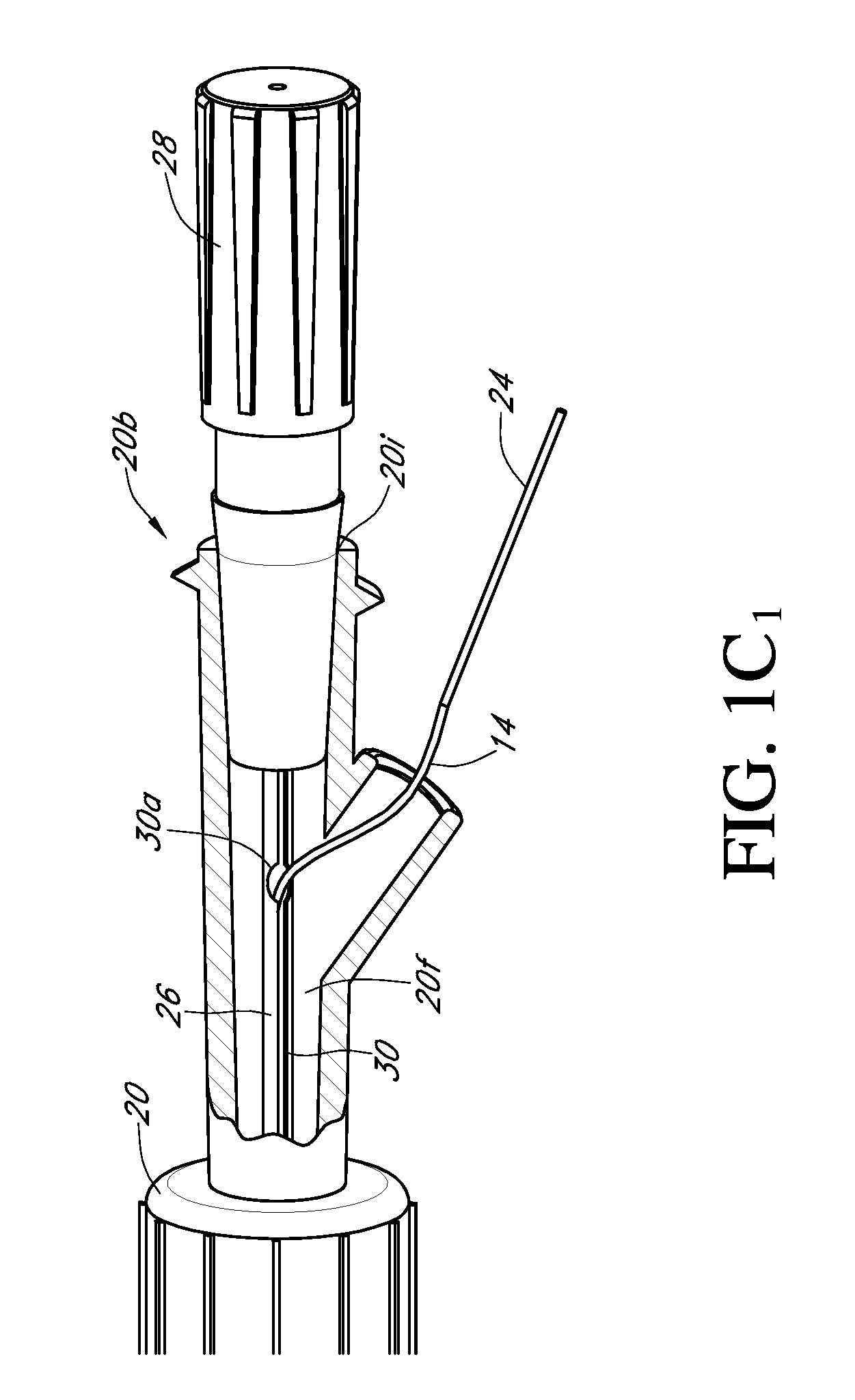Analyte sensor
an analyte and sensor technology, applied in the direction of diaphragms, immobilised enzymes, computer-aided medicine prescription/delivery, etc., can solve problems such as physiological derangements
- Summary
- Abstract
- Description
- Claims
- Application Information
AI Technical Summary
Benefits of technology
Problems solved by technology
Method used
Image
Examples
example 1
Glucose Sensor System Trial in Dogs
[0922]Referring now to FIG. 4, glucose sensor systems of the embodiment shown in FIG. 1 were tested in dogs. The glucose sensors were built according to the preferred embodiments described herein. Namely, a first sensor (Test 1) was built by providing a platinum wire, vapor-depositing the platinum with Parylene to form an insulating coating, helically winding a silver wire around the insulated platinum wire (to form a “twisted pair”), masking sections of the electroactive surface of the silver wire, vapor-depositing Parylene on the twisted pair, chloridizing the silver electrode to form a silver chloride reference electrode, and removing a radial window on the insulated platinum wire to expose a circumferential electroactive working electrode surface area thereon, this assembly also referred to as a “parylene-coated twisted pair assembly.”
[0923]An electrode domain was formed over the electroactive surface areas of the working and reference electrod...
example 2
Glucose Sensor System Trial in Pigs
[0929]Referring now to FIG. 5, four glucose sensor systems of the embodiment shown in FIG. 1 were tested in a pig (˜104 lb), using the protocol described for Example 1, above. Glucose was continuously infused at increasing rates through a distally placed IV catheter until a readout of 300-400 mg / dl blood glucose was achieved (total 300 ml of a 10% dextrose IV solution). FIG. 5 shows the experimental results. Lines indicated the data from the four sensors (Test 1 through Test 4). Diamonds represent control measurements made with a hand-held glucose meter (SMBG). Raw glucose test data (counts) are shown on the left-hand Y-axle, glucose concentrations for the “SMBG” controls are shown on the right-hand y-axle, and time is shown on the X-axle. Test results show that though the sensors varied in sensitivity, each test sensor responded to glucose challenge substantially similarly to the control sensor (SMBG). These experimental results show that an indwe...
example 3
Glucose Sensor System with Flow Control Device Trial in Pigs
[0930]Referring now to FIG. 13, a glucose sensor was built according to the preferred embodiments described herein. Namely, a test sensor was built by providing a platinum wire, vapor-depositing the platinum with Parylene to form an insulating coating, helically winding a silver wire around the insulated platinum wire (to form a “twisted pair”), masking sections of the electroactive surface of the silver wire, vapor-depositing Parylene on the twisted pair, chloridizing the silver electrode to form a silver chloride reference electrode, and removing a radial window on the insulated platinum wire to expose a circumferential electroactive working electrode surface area thereon, this assembly also referred to as a “parylene-coated twisted pair assembly.”
[0931]An electrode domain was formed over the electroactive surface areas of the working and reference electrodes by dip coating the assembly in an electrode solution and drying...
PUM
| Property | Measurement | Unit |
|---|---|---|
| diameter | aaaaa | aaaaa |
| time | aaaaa | aaaaa |
| time | aaaaa | aaaaa |
Abstract
Description
Claims
Application Information
 Login to View More
Login to View More - R&D
- Intellectual Property
- Life Sciences
- Materials
- Tech Scout
- Unparalleled Data Quality
- Higher Quality Content
- 60% Fewer Hallucinations
Browse by: Latest US Patents, China's latest patents, Technical Efficacy Thesaurus, Application Domain, Technology Topic, Popular Technical Reports.
© 2025 PatSnap. All rights reserved.Legal|Privacy policy|Modern Slavery Act Transparency Statement|Sitemap|About US| Contact US: help@patsnap.com



